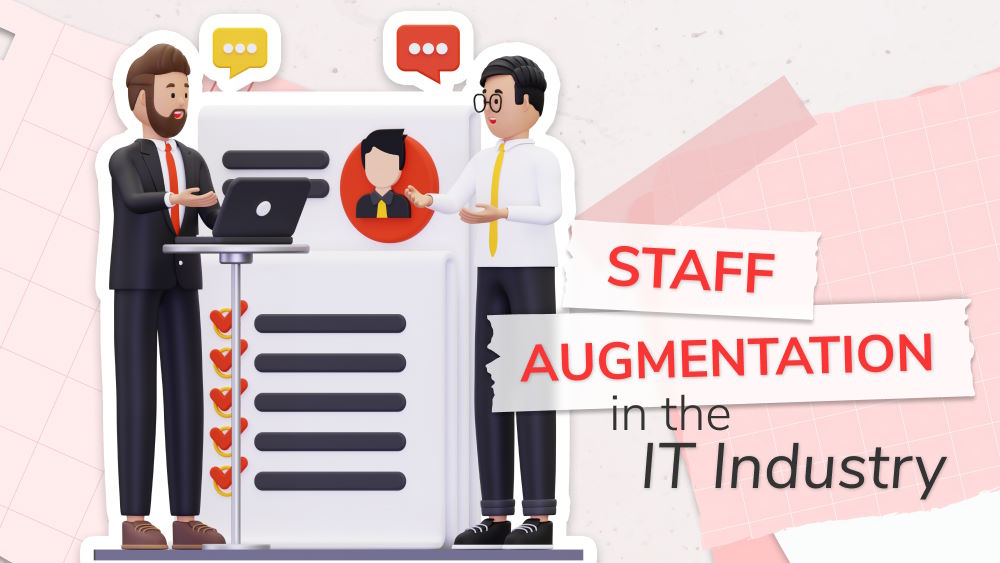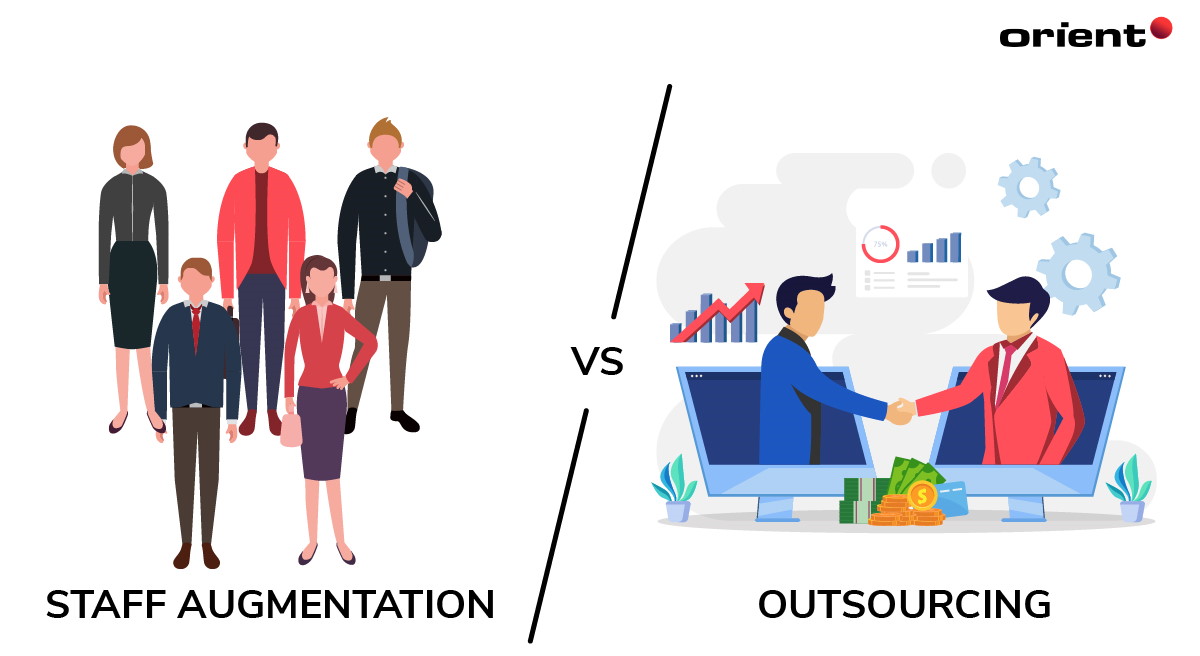Build & Hire a Dedicated Development Team Without the Stress – Useful Tips
This is where you’ll find useful tips that will help you navigate through the complexity of building a dedicated development team or outsource one.

Content Map
More chaptersIn the world of software engineering, a technical team is like the “blood and flesh” of a project. They are the multidisciplinary units in which multiple members with different professional specializations and experience are brought together to form a driving force to transform an initial idea into reality, be it a software product.
A well-established composition certainly sets a solid pedal for the long-term success of a project; however, finding the right talent and forming a good team are no easy tasks. This article is meant to help you chill while having a reliable team focusing exclusively on your project. Let’s waste no more time and get started now.
Key Takeaways:
Here comes a useful note that helps you ease your journey to your dedicated development, whether you decide to build one yourself or outsource it to a third party.
- First and foremost, know what you are about to opt for. Learn everything about a typical dedicated development team: Definition, team structure, roles, and benefits.
- Next, decide which path to go and when to use the model. Remember that dedicated teams can be both in-house and outsourced, so the decision made here is important.
- You can use some pragmatic tips that help you get on track right from the very beginning. You can choose to build your team or delegate it to a service provider. Either way, we can furnish you with some useful tips that can ease the entire process as well as help you avoid making common mistakes. Remember:
- Find the right partner to delegate your dedicated teams to.
- Avoid focusing on cost-cutting only when you outsource a team or find a partner.
- When outsourcing, you should start small with a core team only before scaling up later.
Before You Start: Understanding the Dedicated Development Team Model
The very first tip to ease the entire journey of building or hiring a development team dedicated to your project is to learn all the basics. The in-depth understanding sets the stage for your planning process.

What Is It?
First and foremost, we delve into the definition of a dedicated team. In the IT sector, a dedicated team is used to depict a group of technical professionals (from different backgrounds). Each member within the formation is responsible for specific tasks and functions, which heavily depends on the pre-defined business goals and functionality of the team.
The term “dedicated development team model” refers to a type of outsourcing strategy in which you, as a client, contract with an agency or service provider for an outsourced team.
In other words, you delegate the team assembly to a third party. As a partner, the service provider will take over the entire process from screening, interviewing, recruiting, and managing the staff according to your requirements (in terms of team scale, expertise, experiences, etc.).
Remember that such a team can be either in-house or outsourced, and the decision is in your hands. When outstaffing, a dedicated team can work independently or as an extension of the in-house development team. You can also decide to hire a dedicated development team located onshore, nearshore, or offshore. Each path comes with a set of advantages and disadvantages, so consider it wisely.
Who Is in It?
Yes, we are referring to a dedicated project team structure and its roles. Ordinarily, the composition is made of a mix of key specialists. Each of them contributes one unique expertise to the software development lifecycle (SDLC). A breakdown of the key roles will help you understand how a dedicated team is formed:

Leadership Roles
This is the “captain group” keeps the project on the right track in terms of business objectives, technical feasibility, and delivery schedule. For easy imagination, these roles serve as the bridge between stakeholders and the tech team, and they provide guidance as well as advice on directions.
- Product Manager (PM): Within a dedicated team, a PM represents the voice of the business and its customers. They define the product’s vision and align it with the business goals. They collaborate closely with stakeholders to make sure that the team works on the right problems and ensures the project’s success.
- Project Manager: Acting as the primary contact point for coordination and risk management within the team, a dedicated project manager is responsible for planning manageable milestones, tracking project’s progress, and overseeing daily activities.
- Tech Lead/Solution Architect: As the title suggests, a technical leader focuses on guiding the day-to-day technical execution and team management. The solution architecture defines the overarching design and ensures the software product aligns with the technical vision and business requirements. The tech leader and the solution architect work in tandem to bridge the gap between strategic planning and practical implementation.
Development Roles
These are the core members of any dedicated software team – who roll up the sleeves and execute the coding tasks that collectively contribute to the creation, functionality, and performance of the software product.
- Frontend Developers: Their expertise is on the client-side development of an application. They collaborate with UI/UX designers to transform design mockups into code – to create visually appealing, functional user interfaces and deliver a seamless user experience.
- Backend Developers: These professionals handle the server-side logic, database management, and API integrations. They ensure the application is fast, secure, and scalable under varying workloads.
- Full-Stack Developers: Such roles can handle both client-side and server-side development. Full-stack developers or engineers are primarily responsible for handling the server-side logic, database management, and API integrations. Full-stack professionals are ideal for those teams or projects with limited resources.
Design Roles
The designers are here to align the software product with the user needs and the brand’s identity through a blend of user-centered design principles, iterative testing, creative exploration, and strategic collaboration.
- UX/UI Designers: They study the user behaviors to craft intuitive interfaces that aim to solve real-world pain points while delivering optimal user experience.
- Graphic Designer (Optional): If the team requires extra support for the aesthetic elements of a product, there come the graphic designers. Together with UI/UX designers, they work on enhancements to optimize the overall look and feel of the software product.
Quality Assurance (QA) Roles
These roles refer to quality assurance specialists and testers who are in charge of identifying bugs, inconsistencies, or performance issues before they impact the users. Their ultimate goal is to ensure that the software functions well without defects.
Infrastructure Roles
For example, DevOps engineers or cloud specialists. These specialists join the dedicated team to manage the tools, systems, and processes that support the application’s deployment, scalability, and maintenance.
Specialized Roles
Some projects require additional expertise depending on their scope and technology stack. For example, for those projects that involve large datasets or AI/ML capabilities, we need data scientists or analysts to help with uncovering patterns and trends.
Both in-house and outsourced teams share similar roles and structures. However, every dedicated software development team is unique, much like the projects they are supposed to undertake. Therefore, the roles and structure of one team should reflect the specific demands of your product, and there will be no universal blueprint for all or a copy-paste solution.
That’s why you need to assess your project’s requirements first and decide on the team composition before you begin building or outsourcing a real team.
Why Use It?
It is better to remind you of the reasons why you start considering the dedicated development team model in the first place. Let’s list down a few of the tangible benefits it brings:

Talent Selection
A dedicated software development team is not simply assembled by chance; it is curated to match your project requirements as well as your expectations. When you decide to outsource such a team, you can bypass the local hiring constraints and access the global talent pool where you meet up with the best-in-class professionals on earth. Not only that, but you can also hand-pick each and every specialized individual to create the perfect blend of experts whose expertise, skills, and experience are what you require on your project.
Ramp Up or Down at Your Disposal
The dedicated team model enables flexibility in scaling the group up or down when project priorities shift, market demands evolve, or unforeseen challenges arise. You can adapt to all the changes while avoiding overstaffing/understaffing and unnecessary costs. Instead, the service providers will do the heavy lifting with a guarantee of minimal disruption. As you request, they can onboard additional talent or downsize the team to align the capacity with your current needs.
Complete Control & Focus
What makes the difference between outsourcing a development team and hiring freelance developers? It must be the level of control and commitment. Freelancers often juggle with different jobs at a time, so they hardly dedicate their full capacity to one single project or task. Similarly, an in-house squad that wears multiple hats may struggle to maintain undivided attention.
A dedicated software development team commits solely to your project. You can get full control over the team’s structure, workflows, and priorities. This ensures the unwavering commitment to your project’s progress and success.
Reduce Management Burden
What’s else? In this outstaffing model, the service vendors assign their own project managers or leaders to manage day-to-day of the whole team as a single unit. The person in charge is responsible for reporting to you to ensure transparency and accountability.
Collaboration & Communication without Barriers
The dedicated team approach is a long-term collaboration that fosters open communication, shared vision, and mutual success. You can raise concerns, share feedback, and brainstorm ideas in a seamless and transparent environment. This level of openness and collaboration ensures that every stakeholder feels heard and valued as if there is no boundary between the in-house and outsourced teams. And trust us; a collaborative relationship built on mutual trust and respect like that can boost your team’s performance as well as project’s result to new heights of success.
Additionally, unlike freelancers, a dedicated team and its members become an extension of your in-house counterpart. Hence, over time, they will gain an understanding of your project and product – including potential as well as challenges. This allows them to share your vision and align with your development process, making room for innovative ideas and solutions.
When to Use?
The perks that this staffing model offers are undeniable; however, you need to approach it with a critical eye. Employing or outsourcing a full-fledged tech crew is not a one-size-fits-all solution. What works perfectly in one scenario may present challenges or limitations in another. It ultimately comes down to your needs and requirements, specifically referring to your own situation.

It is crucial to determine which scenario wherein the dedicated team model will be ideal for you and which not. How can you know if a dedicated development team is the right call? Fortunately, you can skip the guesswork because we have outlined the most common cases. Be sure to check each one of the following and save them for future reference (if necessary):
Long-term Projects with Large Scopes or Evolving Requirements
The dedicated model is an ideal solution when your project involves a broad scope, long-term goals, and mutable requirements, not to mention complexity. For example, you conduct a project of developing a custom software product from scratch
In such a case, it is more likely that you cannot count on freelancers, short-term hires, or shared teams – who are only added to support your in-house team on a temporary basis – to understand the nuances of your project and adapt to its continuous development and scaling.
As an extension of your in-house team without the hassle of full-time hiring and turnover, dedicated professionals can stay closely with your project for its entire lifecycle. They align with your long-term business vision, offering consistent technical assistance, adaptability, and deep domain expertise. They solely commit to one project, so they devote their best to its success.
On the flip side, you should not invest in extensive collaboration and long-term commitment for small projects or those with well-defined requirements. Instead, opt for staff augmentation services. You can have skilled professionals to fill the technical gaps and execute the required tasks.
In addition, startups or early-stage businesses can consider augmented teams as well. In the early days, they often operate with limited budgets, and they can hardly afford hiring and maintaining full-time tech teams. The dedicated model enables them to access the expertise necessary to meet project’s requirements while sticking to the budget.
Lack of In-house Niche Expertise
Certain projects demand specialized knowledge or complex domains, like artificial intelligence, blockchain, Internet of Things (IoT), AR/VR, etc. Of that, your in-house team may be unfamiliar with or even lack. With a full-fledged team tailored for one specific project, you gain instant access to experts in cutting-edge technologies, popular programming languages, and frameworks without the long lead time of hiring and training.
Insufficient Local Talent
Currently, skilled developers and tech talent are both scarce and expensive to hire in certain regions. You can overcome talent shortages if you contract with a service provider for an offshore or nearshore dedicated team. Competitive talent markets, like Vietnam, can offer access to top-rated talent in exchange for lower rates. Don’t worry because you will not compromise quality for budget savings. Business owners like you can enjoy allocating your budget and resources more effectively while speeding up the hiring and onboarding processes, which translates into faster project initiation.
How to Unlock Success with Dedicated Software Development Teams
Dedicated teams are not one-time solutions but long-term investments. There is no wonder why business owners are uncertain or even hesitant about this initiative.
Some prefer a full-fledged team assembled and operated within their company walls, while others hand over the hard work to capable hands – the software development outsourcing companies that provide professional staffing services.
Either way, decision-makers should never proceed without strategies or plans. They should use some tips – the useful and handy ones. Whether you build your own team or outsource it; good for you, we provide advice for both approaches.
Useful Tips to Build Your Own In-house Dedicated Team
Picking up each qualified candidate and grouping them as a team can be a “weight-lifting job.” It may no longer be if you know how to apply a few good tips:

Know Where You’re Head
You always hear: “If you fail to plan, you plan to fail.” This adage still holds true when building an in-house team. From the outset, you must have defined the project scope as well as the goals and purposes of your team composition. Envision the big picture: Your team is tasked to develop a new product or maintain an existing platform. Scale an application or enhance a system’s features?
Clarify everything, and you can map out the skills for each task and required role accordingly. For example, a web-based platform requires front-end developers skilled in JavaScript frameworks, back-end developers proficient in database management, and UI/UX designers to create user-friendly interfaces.
Moreover, the decision is yours to make, so you’d better know what you get and what you may risk for. We’re referring to you choosing in-house teams over outsourced ones. Make sure you weigh the pros and cons before you make a decision.
Foster a Strong Company Culture
We all agree that the tech industry is highly competitive. Therefore, it is imperative to cultivate a collaborative, growth-oriented environment and promote a strong company culture as well as build a good reputation within the sector if you would like to compete with others. Believe us; this will become your compelling differentiator that helps you to attract and engage with top talent locally as well as globally.
Invest in Tech Hiring Experts
If you decide to employ full-timers and form the team by yourself, you probably need in-house hiring experts. Having a strong recruitment team will pay off in multiple ways.
In the tech industry, the competition is fierce. Tech talent acquisition and recruitment may take lots of time, from job posting to screening, interviewing, and onboarding. Without real professionals handling the heavy lifting of recruitment, you may end up rushing for bad hires or delaying your project.
Tech roles are highly specialized, and you don’t know what you don’t know. Hiring experts not only keeps your effort on the right track but also helps you “dodge bullets” from wrong hires. Expertise and experience enable them to bring a system to your hiring endeavor and tailor the search to your exact needs. With expert radar on, they can filter through a plethora of candidates and present only those that meet your criteria not only on paper but also in practice.
Moreover, hiring experts can advise on other incurring issues related to your team setup in the long run. Think about it; you can stay focused on what you do best. If you decide to employ full-timers and form the team by yourself, you probably need in-house hiring experts.
Rushing Is No Good
The pressure of time and budget may lead to poor hiring decisions. But for setting up an in-house development team, rushing to hire may be tempting, but it should never happen. This is one of the common blunders, and you do not want to end up with the same misstep. Take a deliberate and thoughtful approach.
Useful Tips to Outsource a Dedicated Team
Having an internal workforce dedicated to your operations and activities is the ideal scenario, right? Unfortunately, not all businesses have the luxury of an exclusive team. They can take a shortcut for a less stressful hiring experience by partnering with a service provider for dedicated development team services. The vendor will do the lifting for you while optimizing your budget allocation.

However, outsourcing is not that easy. It’s true that an outsourcing partner takes over the hiring process and delivers a self-managed team. You may step back to oversee the whole process but still keep an active role in ensuring your partnership’s success. The following tips can benefit you:
First and Foremost, Find the Right Partner
If you choose to outsource, you will surely go nowhere without the right partner. You may have to go through list after list just to pick out the most appropriate vendors for your selection, as there are countless numbers of outsourcing companies out there. Not all are equal in quality and in terms of price. Therefore, you need to have a well-thought-out strategy to pick and choose the right partner and be selective. You can refer to our guide for how to find, assess, and choose the right software development outsourcing company.
Cost-cutting Should Be a Plus, Not the Only Goal
It is no secret that outsourcing is an optimal solution for most businesses’ budgets. Outsourcing the entire project or contracting a dedicated team can save business owners opportunity costs. However, do not fall into the trap of the cheapest options. You may risk your quality services for lower prices. As we all know, tech talent and experts are not cheap to hire, especially good ones. And underqualified and inexperienced teams might result in rework, which wastes your time and negates initial savings.
It does not necessarily mean that you always have to pay high to get jobs done well. Instead, balance cost and quality. Analyze the cost-to-value ratio in terms of expertise, experience, support, and level of commitment. Moreover, do not allow vague or overly complex pricing structures. Ask your potential partners for a breakdown of costs (Including hourly rates, management fees, and any other charges). This is how you can avoid surprises as well as ensure that you invest wisely. Plus, transparent pricing models partially aid you in filtering the capable, reliable partner from other candidates.
Prioritize the Core Team First
When hiring dedicated development teams, you should proceed with caution. Don’t rush to ask your service provider to assemble the whole group at once. Starting small with the core setup would be wiser. You should decide which roles are critical and must be recruited first to form the “soul” of the team.
The key players can aid you greatly in the hiring process along with the vendor. They can participate in screening candidates in terms of specialized expertise and assess how well the future team members into your team dynamics through informal conversations or questions. Trust us; this tip works effectively, particularly when you outsource a remote team.
With a core team, you can scale up more easily without worrying about overstaffing or budget constraints. Your development partners can also stay focused on the primary goals you set for your software development projects or teams.
Build Long-Term Relationships
Outsourcing is not just getting jobs done, especially when what you outsource is not simply a project - you hire dedicated teams. So, it is important to maintain a good relationship with not only the outsourced team but also the service provider. Treat the dedicated software developers as your in-house staff. Foster mutual trust, provide consistent, constructive feedback, and offer incentives for long-term collaboration. This will support building a strong relationship with your outsourcing partner and strengthen the bond between your in-house team and the outsourced one, reducing turnover and ensuring smoother engagements.
Frequently Asked Questions (FAQs)
What Is the Difference Between Dedicated Team Model, Extended Team, and Staff Augmentation?
Let’s clarify these terms by definition.
- A dedicated team model refers to a full, independent group (often known as self-managed team) of professionals who exclusively works on one project for the long term. You hire dedicated teams, and the service vendor manages administrative tasks while you oversee the project.
- An extended team includes external professionals integrated with your in-house team. This collaborative approach is to fill skill gaps or increase capacity.
- Staff augmentation is an outsourcing model or service in which individual professionals are hired on a temporary basis to support specific tasks or address immediate skill gaps. You manage these augmented staff directly.
Each model suits different scenarios based on your project’s duration, complexity, and management preferences.
How Can I Get Started with Outsourcing Software Development or a Dedicated Technical Team?
As one of our tips mentioned above, find the right service provider who will take care of your dedicated team from A to Z. Scout for potential candidates. How can you tell if it is the one? Of course, it is not a decision made with gut feeling.
We can help you cut through the chase. We – Orient Software – can be your ideal partner. For your consideration, we are a software development outsourcing company based in Vietnam with a 20-year history in the IT industry. We are recognized for our quality services and our commitment to customers’ value and satisfaction. Our service offering goes beyond dedicated development teams and tech staff augmentation. We provide a diversity of tech-related services, including custom software development, quality assurance and testing, and more. You can refer to our catalog for further information.







